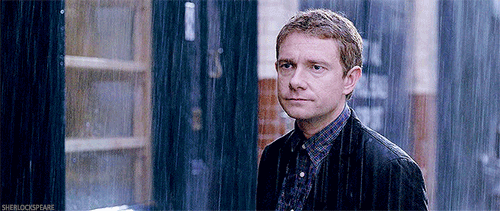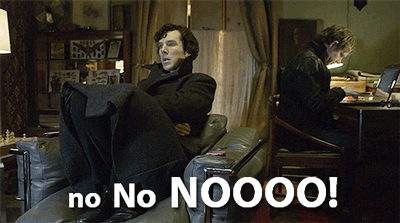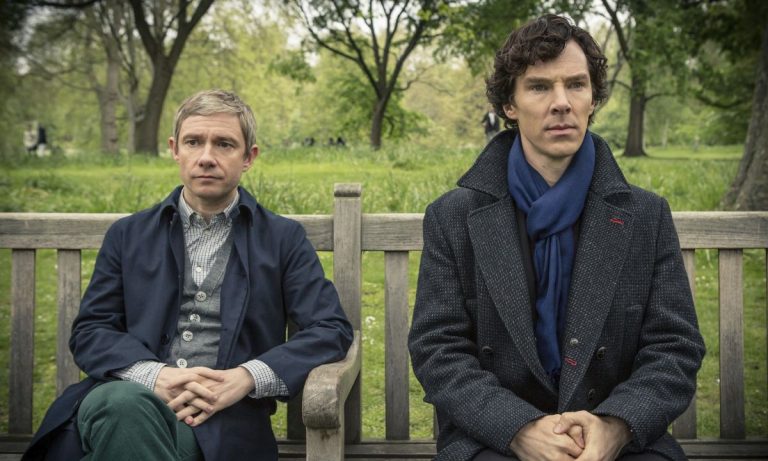Back in the dreamy, innocent, days of 2010, the BBC delivered one of the best new miniseries’ in years. Sherlock, from writers Stephen Moffat and Mark Gatiss, was unapologetically set in the modern day with London cabs, texting and blogging. The time travel worked, and Benedict Cumberbatch and Martin Freeman were not only the best Holmes and Watson of their generation, but had the kind of chemistry a casting director probably drools over. The writing was great, the mysteries were compelling and watching Sherlock unravel them was a joy to watch.

So, five years later, how has it come to this? The latest outing of Holmes and Watson has something to it, at least for a while. Teleporting the characters back to their original Victorian setting was the kind of self-referential twist the show is known for, and for what seemed like most of the episode we were given the set up for an intriguing gothic mystery. Then all of a sudden things came crashing to a slow, meandering halt.
Moffat and Gatiss, both now veteran writers of Doctor Who, have an indisputable gift for writing charming dialogue that can make scenes pop with energy. What The Abominable Bride, as well as the underwhelming season three, would seem to confirm though is that story structure has become a problem for them. Pull out any scene from the recent New Year’s special and you’ll easily crack a grin at the show’s natural wit. Stick them altogether though, and somehow we’re left with frustrating incoherence masked as complexity, and a general sense of a third act that falls flat.

Let’s step back for a minute though. What exactly was the mystery Holmes was tackling on his grand return to Dickensian London? A bride in full wedding regalia shoots up a crowded street, only to turn the gun on herself. The twist? The bride would later turn up alive (or undead?) to mow her husband down with a shotgun. It’s the kind of mystery Sherlock Holmes can sink his teeth into, and gradually untangle a rational sequence of events that explains the whole affair. You know, the whole art of deductive reasoning that’s been at the heart of Holmes’ stories since his inception by Arthur Conan Doyle?
Next, events shift from the Victorian fog of London to a gothic country manor. A man has begun to see the ghostly apparition of a bride haunting his grounds in the early hours of the morning. Great, we think, time for Holmes to begin unravelling things. Except now the man who saw the bride has been murdered and Holmes is suddenly convinced Moriarty is behind it. Cue a scene where Sherlock trades barbs with an imaginary Moriarty and suddenly he’s waking up on the plane in the present day, where we left him at the end of season three.

hulu.tumblr.com
Aren’t we clever, the writers seem to proclaim. I bet you didn’t see that one coming. Now pay close attention to the last half hour, as it’s all very complex, which means you probably won’t understand how clever it is unless you watch it a few more times.
When Holmes finally does explain how the bride shot herself, and how she’s wandering around hedge mazes and scaring old men, it feels equal parts like an afterthought and an anticlimax. It was women what did it; feminism understood as jilted lovers getting revenge on the men that used them. I’ll not get into how patronising this must be for women – Twitter has already done that. From a murder mystery point of view, it all comes out of left field. There’s no real indication up until Holmes explains everything that the men who were murdered had been abusive to women. Then it turns out Moriarty was behind it all along. It’s the kind of hand wavy explanation you’d expect to find in something like Doctor Who, which probably isn’t surprising given the writers.
Instead of an epic finale, we got a series of increasingly bizarre dream sequences, and things became ever more self referential to mask the fact that the story was becoming less and less coherent. Scene to scene, it’s a lot of fun, but as a whole, and especially as a Sherlock Holmes story, it feels one jenga block away from falling apart.
During Sherlock‘s early series’, a quote was often bandied about from Stephen Moffat: “Other detectives have cases, Sherlock Holmes has adventures, and that’s what matters”. For a long time this idea made sense, but now I think it might be the real problem at the heart of the series. Sherlock Holmes does not have cases, but nor does he have adventures either. The Doctor has adventures. What Sherlock Holmes has is mysteries: impossible mysteries that seem fantastical and unearthly, which Sherlock unravels over the course of a story with the art of deductive reasoning. That’s what made the first series of Sherlock such a success. Somehow the writers have forgotten this. They’ve abandoned the mystery format that makes Holmes such a fun character to be around. In an almost literal sense, they’ve lost the plot.
Some of the coverage you find on Cultured Vultures contains affiliate links, which provide us with small commissions based on purchases made from visiting our site.

